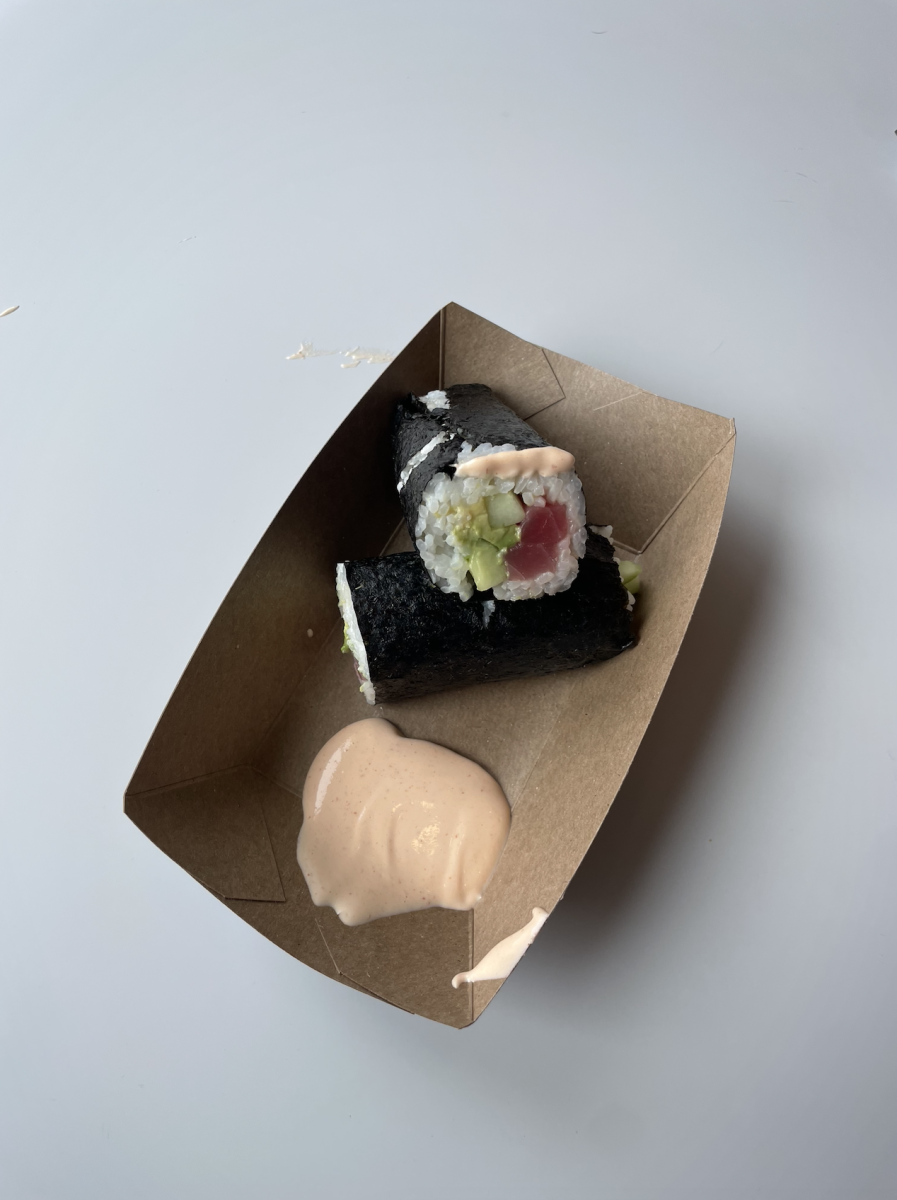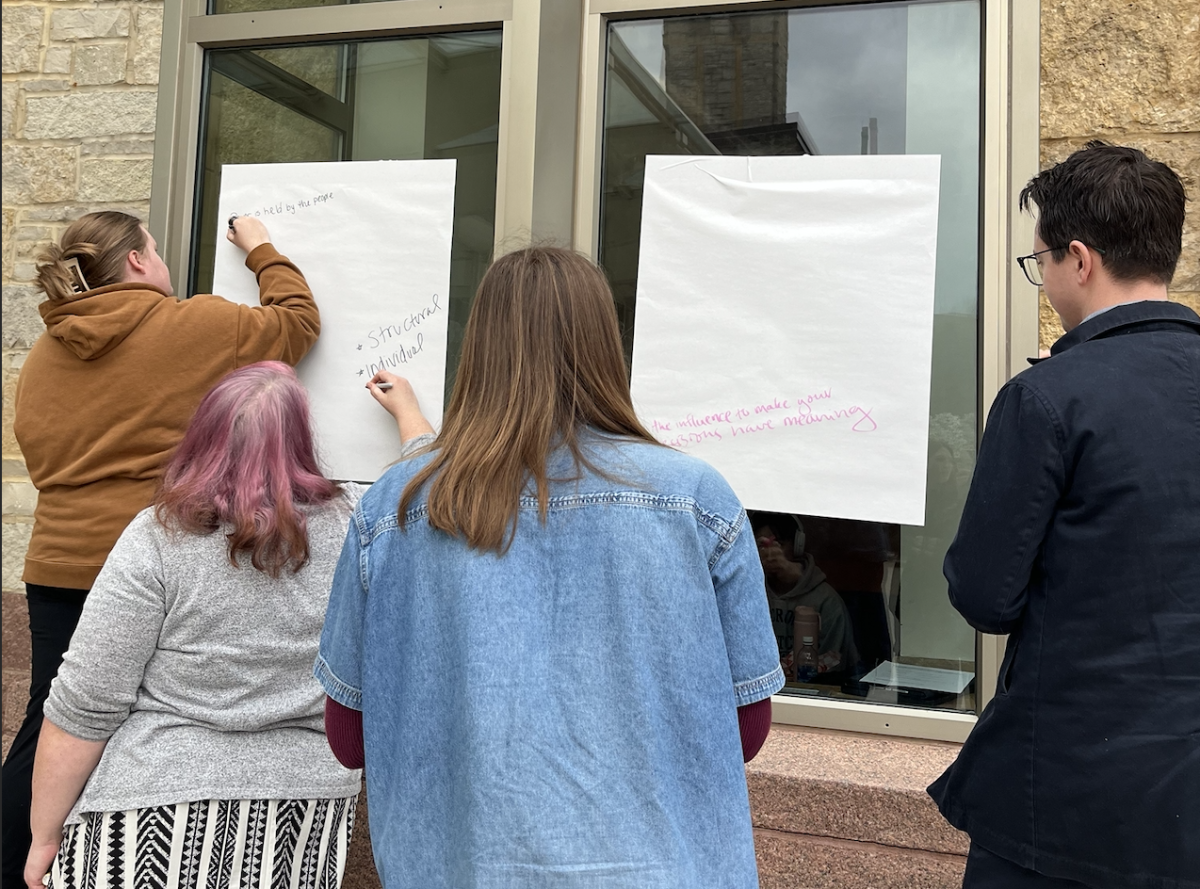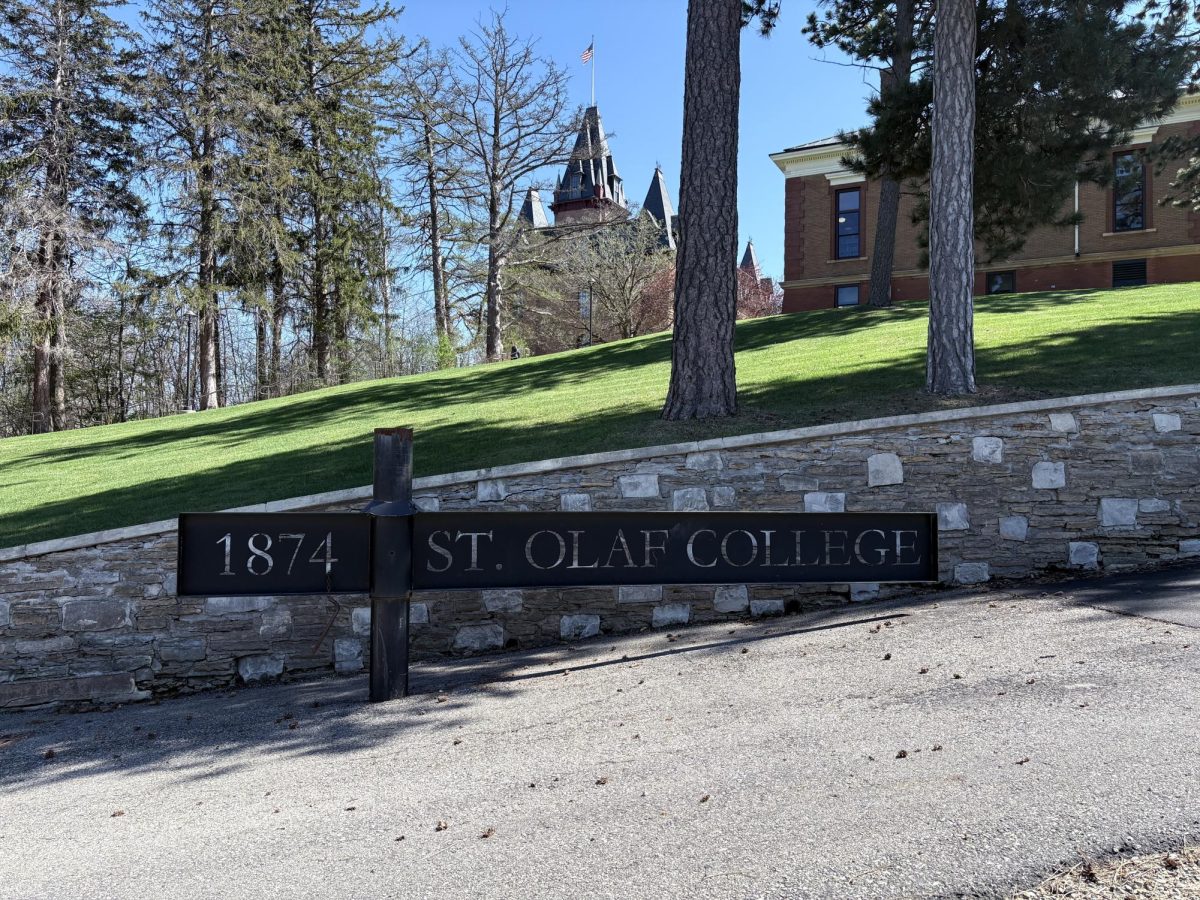On Jan. 20, President David Anderson ’74 released a statement in response to President Donald Trump’s executive order that temporarily banned entry into the United States for people from seven predominantly Muslim countries. Anderson’s message was delivered in Boe Chapel, and he gave his statement in the form of a personalized and direct response from the St. Olaf administration speaking out against the order.
The statement primarily focused on St. Olaf’s philosophical stance, how the order may affect members of the St. Olaf community and what legal actions on behalf of the college may look like in the coming months. U.S. District Court Judge James Robart blocked the ban nationwide on Feb. 3, and the Ninth Circuit Courts of Appeals refused to reinstate the ban on Feb. 9. The future of the executive order or similar orders and their possible impacts at St. Olaf are unknown.
Anderson began his statement by reiterating St. Olaf’s mission statement, which emphasizes success in the liberal arts, meaningful vocation and a globally-engaged community encompassed by Lutheran tradition.
Referencing the mission of the college to be “globally engaged,” Anderson said “The President’s executive order therefore endangers our ability to accomplish our mission, and it contradicts our values… So, we will take all necessary steps to support members of our community and to lawfully oppose the actions taken by this executive order.”
As stated by Anderson, the St. Olaf administration plans to “lawfully oppose” the order, aiming to ensure student protection and care in full. Anderson has said that the support to be provided to those affected by the ban has thus far been ambiguous, as the situation is ever-evolving and unique for each student. However, because the ban is currently blocked, the college is acting under the assumption that its measures may be reinstated in the future. This assumption means considering whether students from the affected countries will be able to travel abroad in the future, whether to go home or to participate in an academic program.
General Counsel Carl Lehmann ’91 spoke to these concerns.
“It wouldn’t be a time to leave the country,” he said. “This is a window of opportunity for anyone who’s outside the country who wanted to come back, to come back.”
Nouf Al-Masrafi ’19 is from Yemen, one of the seven banned countries, and mirrored Lehmann’s thoughts on the differences the ban will make in the future of her travel possibilities.
“I was having plans of doing a language program in Germany, and I don’t think it’s an option anymore,” she said. “I was considering studying abroad next year, and it’s not an option anymore. So far, my plans are that I won’t leave until I get my degree unless I have to … unless something is added to the ban where we are asked to leave.”
According to Anderson, attempts made to address the concerns and fears of students have largely taken place in the International and Off Campus Studies Office, which some affected students have utilized to better understand the complexities of their situation. Furthermore, Anderson guaranteed that the Immigrant Law Center of Minnesota (ILC) will come to campus for an event to provide information about the ban, as well as pro-bono legal services when appropriate.
“[The event] would focus on what the current situation is, what they [the ILC] believe could be coming based on what they are hearing from the [Trump] administration and what impact those changes will have on key issues like staying in the country, being able to participate in all campus programs [and] student aid,” Lehmann said. “Based on my short conversation with John Keller, the executive director of the ILC, there are a number of ways for individuals who are contacted by immigration to oppose efforts of deportation.”
Concerning other potential actions on behalf of St. Olaf, Anderson stated that all but one of the students from the seven banned countries are currently in the U.S., and Lehmann said that as long as these students stay in the country, their safety is ensured. If, however, a student is held outside of the country and is unable to return to campus, Lehmann said that there have been instances in the past in which students have needed written letters from administration to prove that they are attending college in the United States. The college is open to taking similar actions if necessary.
In the midst of such uncertainty, the state of Minnesota has followed in Washington’s footsteps, suing the federal government over the ban on the grounds that it is harmful to Minnesota’s post-secondary educational institutions, residents, travelers and businesses. As all of those affected are having to respond to the ban in its suspended state, St. Olaf is contributing in its own way to ensure that the ban is not reinstated.
“It’s still a legal battle at the district court level,” Lehmann said. “The district courts have to have a hearing real soon and could lift the injunction. Actually, we have been asked to participate in that. Minnesota and Washington are the two in manner and the office reached out to us and asked us to provide an affidavit confirming that we see the executive order as a threat to our mission and detriment to the college.”
Whether the ban is kept out of practice, or people from the seven countries are again barred from entering the U.S., St. Olaf is prepared to do what it can to protect its students within the bounds of the law and the college mission statement. As far as helpful actions on behalf of the St. Olaf community go, Al-Masrafi emphasized that students should stay up-to-date on the news, listen more than they talk, attend local rallies and call their government representatives to voice their opinions. More than anything, she highlighted the importance of acknowledging the events that have led up the executive order, and that in that context, the ban should not have been surprising to U.S. citizens whatsoever.
“[The executive order is] the outcome of what has been happening for so long … it’s not out of the blue so I don’t know why we’re so shocked.”


